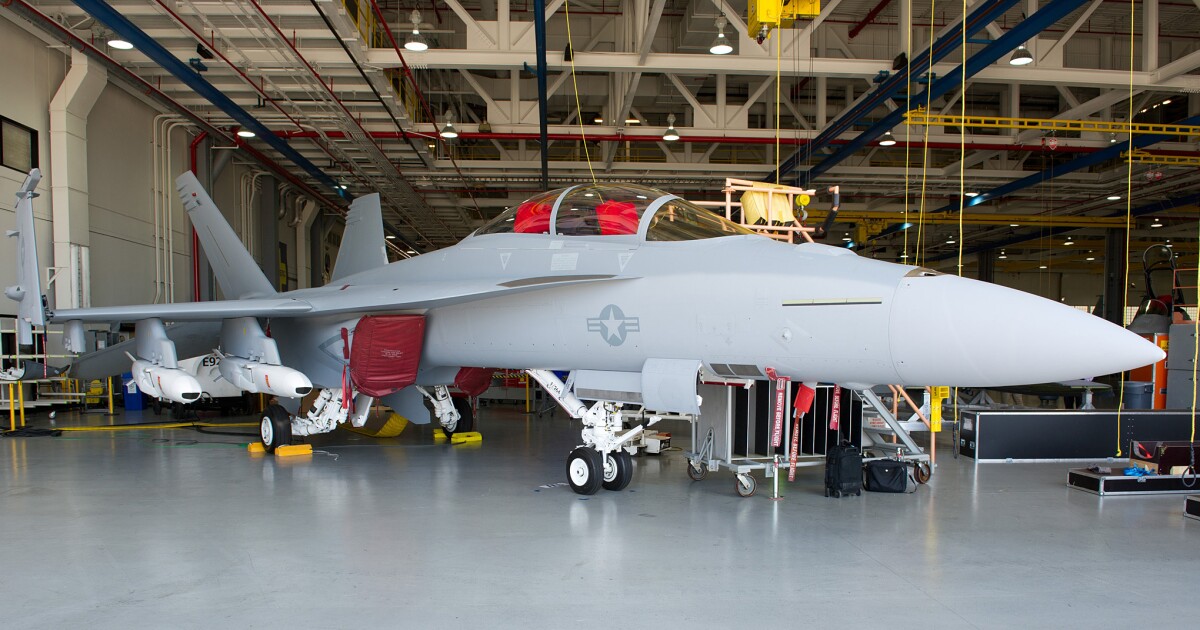Boeing gets Missouri state, local incentives to vie for Pentagon contract
4 min read

The state of Missouri and St. Louis County have approved nearly $200 million in incentives to help Boeing Co. expand its current facilities in the St. Louis area as the aerospace company vies to win a large Pentagon contract to build the next generation of fighter planes for the military.
The St. Louis County Council approved $155 million in tax breaks over 10 years for the company while the state’s Development and Finance Board has approved $37.7 million in incentives, including $8.8 million in tax-exempt revenue bonds, $20.4 million in tax credits from the Missouri Works Deal Closing Fund, and $8.5 million in recruitment and training assistance from the Missouri One Start program.
St. Louis is competing not only against other U.S. cities where Boeing has facilities, but the aerospace company is competing against other defense contractors, including Lockheed Martin Corp., which is seeking its own incentives from other public entities. Lockheed, for example, has received nearly $80 million in tax abatements from Cobb County, Georgia.
Boeing
In May the Department of the Air Force released a classified solicitation for an engineering and manufacturing development contract for the Next Generation Air Dominance Platform, which would replace the current F-22 Raptor. The contract for NGAD, which Air Force secretary Frank Kendall called “a generational leap in technology over the F-22,” including both crewed and uncrewed aircraft, is scheduled to be awarded next year.
Boeing currently makes the F/A-18 fighter jet at its Berkeley, Missouri, facility next to Lambert St. Louis International Airport but announced in February that it plans to wind down production of that plane by 2025 as it “redirects resources to future military aircraft programs,” such as NGAD.
In August Boeing said it plans to spend $1.8 billion to open three advanced-aircraft manufacturing facilities in the St. Louis area. Boeing is the largest manufacturer in the state, where it has had a presence for more than 80 years through predecessor firms like St. Louis-headquartered McDonnell Douglas, which merged with Boeing in 1997.
The tax incentives from St. Louis County represent a 50% cut in real estate and personal property taxes over the next 10 years. They also exempt some building materials from sales and use taxes.
In return for the incentives, Boeing promises the project will create at least 500 new jobs, each earning an average $90,000 a year. It also includes a claw-back provision that requires the company to keep at least 12,100 total jobs in the region over the plan’s duration, including the 500 new hires. Boeing currently employs 16,000 workers in the area, which would give it room to lay off as many as 4,000 people and still retain the incentives.
In August the St. Louis Airport Commission approved expansion of the company’s lease of about 158 acres of land near the Lambert airport.
Greater St. Louis Inc., a business booster group, in a letter to the County Council urging them to approve the tax incentives, said the deal “would create $155 million in new revenue that could be used for additional priorities across St. Louis County and would not impact existing County revenue. “
Maggie Kost, the group’s new chief business attraction officer and former head of the Missouri Department of Economic Development, told the St. Louis Post-Dispatch that the county couldn’t assume Boeing would choose the St. Louis region for the proposed defense work.
“We cannot take these jobs for granted,” she said at a County Council hearing in August. “We are in constant competition as each and every day other communities are vying for the attention of our top employers. In this case we are also helping Boeing compete nationally against other aerospace companies.
“A year ago in Georgia, Lockheed Martin received $1.6 billion in bond issuance and $77.9 million in tax abatements. You can guarantee that they will be putting that investment to use to compete for the same contract that we want to bring here to St. Louis,” she said.
“The great thing about these programs is that they don’t cost existing taxpayer dollars,” she added. “The revenue that the council is considering will not exist if we don’t compete and win this contract for St. Louis.”
Randell Gelzer, senior director of state and local relations for Boeing, told the council that the company had considered other Boeing sites and that it faces competition from other companies.
“This proposal is critical to our being able to make and ensure that we have cost competitive proposals to the Department of Defense into the future,” and “will allow us to compete for the next franchise programs,” he said. “This is key to significantly growing our advanced manufacturing capability at the site.”







